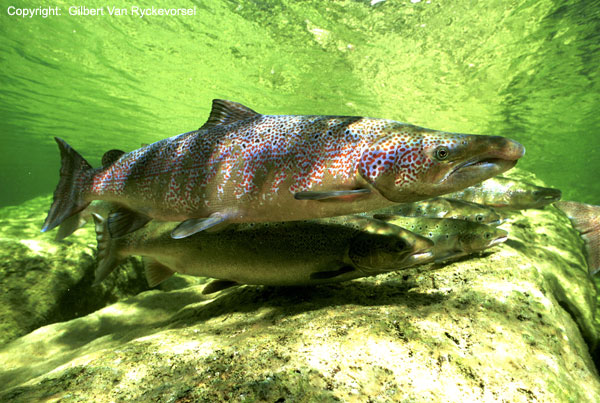When global warming happens, Atlantic salmon will likely be just fine. They have shown a surprisingly good capacity to adjust to warmer temperatures that are being seen with climate change.
The finding about Atlantic species adds to similar research about the heat tolerance of Pacific salmon. Scientists studied wild salmon from two European rivers. They compared a cold-water population from Norway's northern Alta River, where water temperatures have not exceeded 18 C for 30 years, with warm-water populations from France's Dordogne River, located 3,000 kilometres south, where annual water temperatures regularly exceed 20 C.
Eggs from both populations were hatched at the University of Oslo, where they were raised at 12 C or 20 C. Despite substantially different natural environments, both populations had remarkably similar capabilities when warmed.

Atlantic salmon. Credit: Gilbert van Ryckevorsel/University of Wisconsin - La Crosse
When reared at 12 C temperatures, salmon from both populations developed cardiac arrhythmias at 21 to 23 C, after a maximum heart rate of 150 beats per minute. But those raised at 20 C developed cardiac arrhythmias at a surprising 27.5 C, after the heart reached 200 beats per minute. Researchers found that increasing the fish's acclimation temperature by 8 C raised temperature tolerance by 6 C.
"The results are surprising," said Tony Farrell, Chair in Sustainable Aquaculture at the
University of British Columbia. "A fish faced with uncomfortably warm temperatures might relocate or even die if it is too extreme. Here we have evidence for warm acclimation of a commercially and culturally important fish species."


